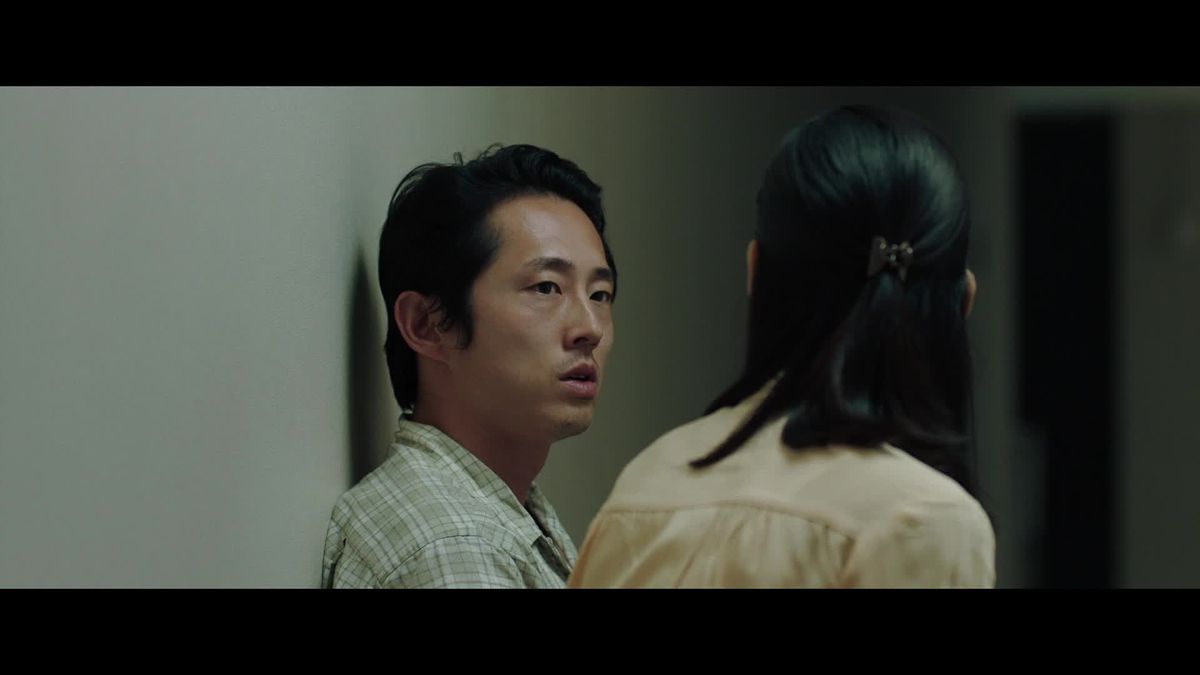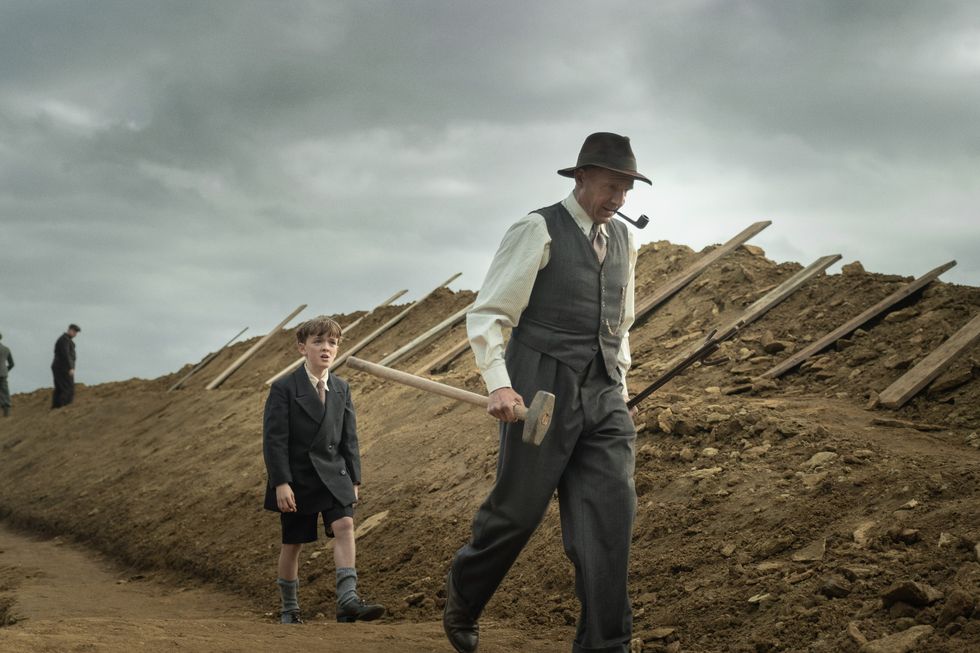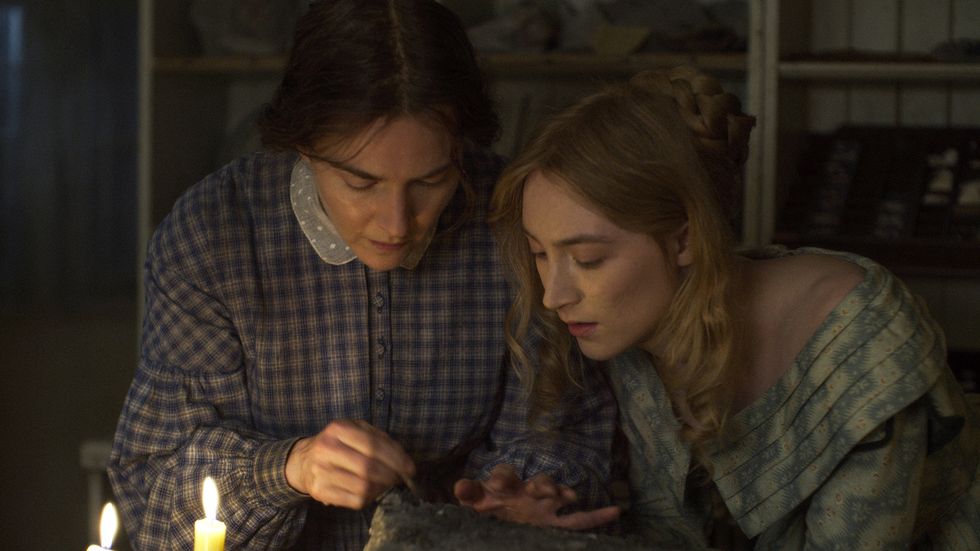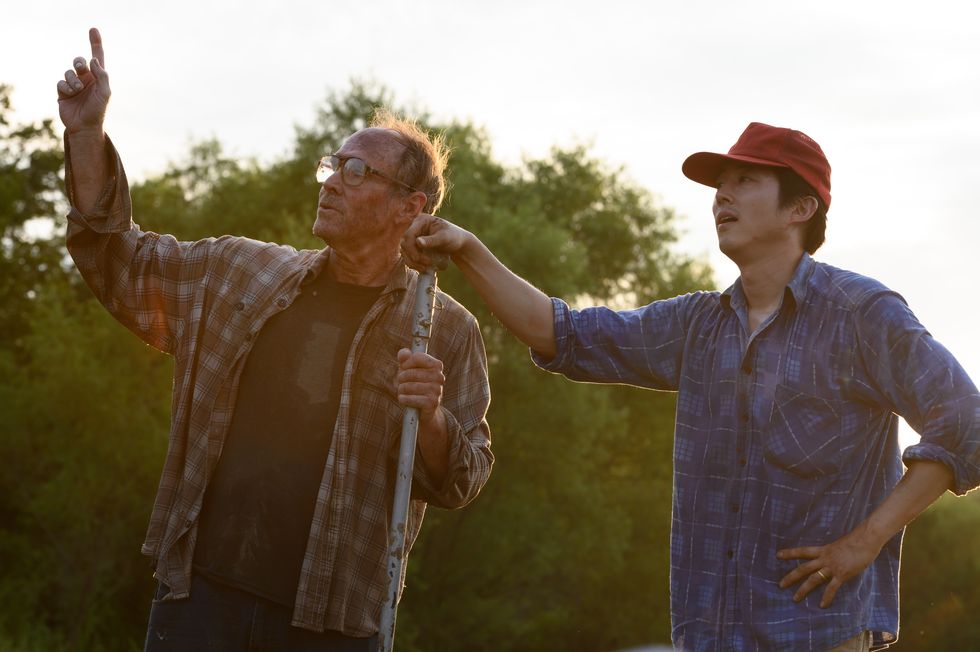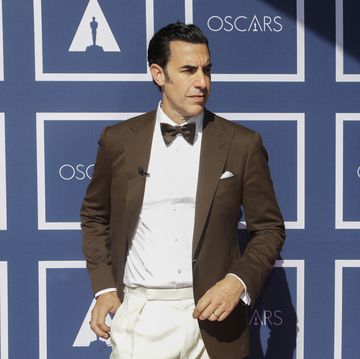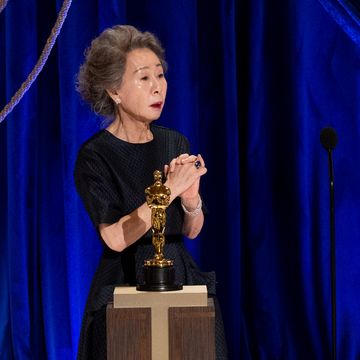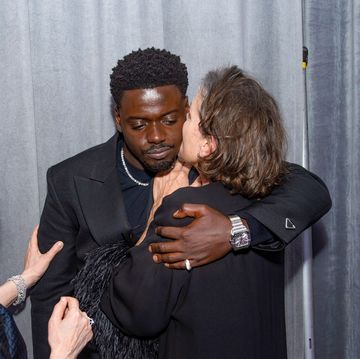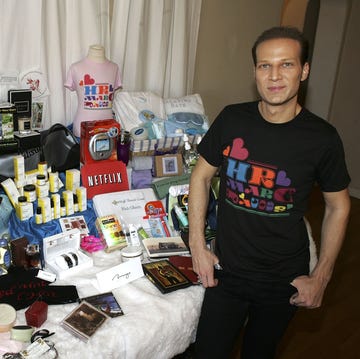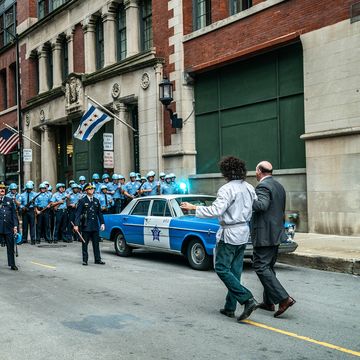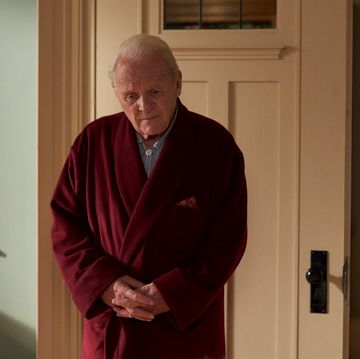When was the last big year for movies about digging? Perhaps 1993, when Jurassic Park dominated the box office with a tale of a palaeontology gone wrong. But really, you have to assume the pull for viewers was the mutant dinosaurs rather than the fossils. This awards season the field is much tighter, and considerably more ravaged, with several films looking to what lies beneath to unearth truths about the past, and in turn about ourselves.
Last month Netflix released The Dig, a story based on the real excavation of burial mounds at the Sutton Hoo estate in the late Thirties, and a tale of quiet yearning amongst the soil. It is followed by two films which break ground in different ways: Francis Lee's staid story of fossil hunting, Ammonite, and Lee Isaac Chung's tender farm fable, Minari, in which an Asian-American family dig for a better future.
Like The Dig, Ammonite is rooted in history. It centres on palaeontologist Mary Anning, a groundbreaking 19th century fossil-hunter who was muscled out of the spotlight because of her class and gender. It's a character study about someone's fascination with uncovering history, and in turn what this says about them. In the same way that The Dig's Basil Brown is a reclusive man who is more comfortable turning over the soil than holding conversation, Anning is a gloomy and solitary figure, who appears as coiled and impenetrable as the type of fossil from which the film takes its name. In both movies, poring over buried fragments of the past brings love interests closer together as they sift through the earth in awe, and soon the physicality of digging becomes charged with sexual tension, a metaphor for the unspoken lust between these people.
Digging for something is a somewhat obvious metaphor for soul-searching, but it does speak to the yearning which flickers inside these lonely people, as well as the act of plundering the earth for a reminder of something greater than ourselves. There is comfort in the idea that we are part of the unbroken line of history, as Ralph Fiennes's Brown says in response to the suggestion that life is fleeting: "From the first human handprint on a cave wall, we're part of something continuous."
In Minari, a Korean-American family move to Arkansas to chase the American dream and start a farm. The father, Jacob, doesn't want to pay a dowser to divine where the water source on the land might be. Instead, he believes he can outsmart the traditions of the land and use intuition to find water. In a nod toward the kind of assimilation which immigrants have forced upon them, Jacob doesn't want to submit to this place, though eventually realises the ways he must be humbled by the land if he wants it to nourish his crops.
Jacob digging for water is about survival for his family, not an intellectual hobby financed by the wealthy or a way to escape the humdrum of an ordinary life. He wants his children to see him succeed at something, and they have come to this place in the belief that the soil holds a better life for them. As he goes deeper into the earth, we see the inverse process as this multi-generational family put roots down in America, and grows taller.
Each of these films are period pieces, recreating Thirties Suffolk, 1840s Dorset, and Eighties Arkansas respectively, all times in which enlightenment and self-satisfaction could be found with a rusty trowel, not the Headspace app. Turning over the land is a physical way to connect to the earth, which quiets the soul, or at the very least gives you something to show off about to someone you fancy.
To those watching in 2021, there is something seductively simple about the physical work of digging for answers, a gruelling act which is the antithesis of the tiny metal device in your hand which already knows everything. Perhaps we too are trying to root out some truth about the way we live now and find traces of what is buried beneath us, or maybe we're just sifting through the dirt.
Like this article? Sign up to our newsletter to get more articles like this delivered straight to your inbox
